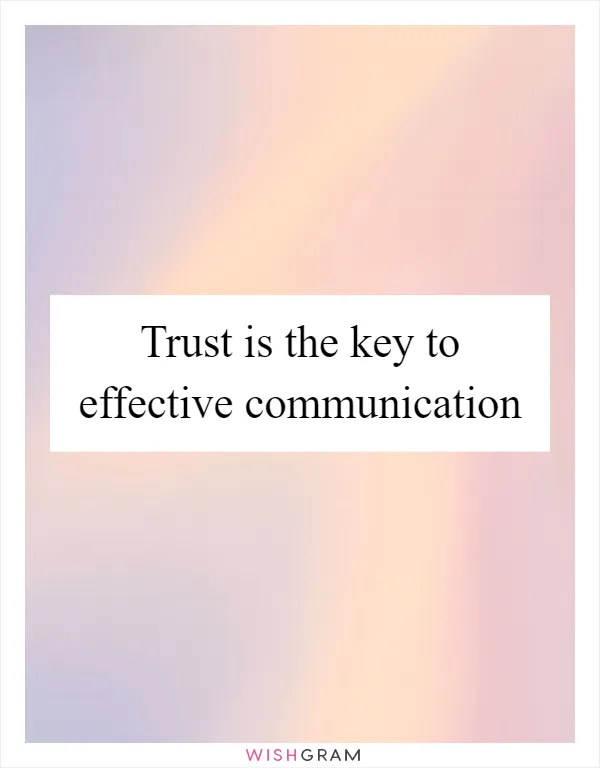Trust is the key to effective communication
Trust is the foundation of effective communication. When there is trust between individuals, it creates an environment where open and honest dialogue can flourish. Trust allows people to feel safe expressing their thoughts, ideas, and concerns without fear of judgment or negative consequences. It is the key that unlocks effective communication and fosters strong relationships.
Without trust, communication becomes strained and ineffective. When trust is lacking, people may hesitate to share their true thoughts and feelings, leading to misunderstandings and miscommunication. Without trust, individuals may withhold information, make assumptions, or even manipulate the truth, all of which hinder effective communication.
Trust is built over time through consistent and reliable actions. It requires honesty, integrity, and transparency. When people consistently demonstrate these qualities, trust begins to develop. Trust is not something that can be demanded or forced; it must be earned through actions and behaviors.
Effective communication requires trust because it allows individuals to be vulnerable and authentic. When there is trust, people feel comfortable expressing their opinions, even if they differ from others. They can openly discuss their concerns and work together to find solutions. Trust enables individuals to listen actively and empathetically, understanding different perspectives without judgment.
Trust also plays a crucial role in resolving conflicts. When trust exists, conflicts can be addressed openly and constructively. People can engage in honest conversations, seeking to understand each other's viewpoints and finding common ground. Trust allows for compromise and collaboration, leading to effective problem-solving.
In professional settings, trust is essential for effective teamwork. When team members trust each other, they can rely on each other's expertise and support. They can delegate tasks, share responsibilities, and work towards a common goal. Trust fosters a sense of unity and cooperation, enhancing productivity and overall team performance.
Trust is equally important in personal relationships. Whether it's with family, friends, or romantic partners, trust forms the foundation of strong connections. It allows individuals to be vulnerable, share their deepest thoughts and emotions, and build intimacy. Trust enables individuals to rely on each other, knowing that they have each other's best interests at heart.
To cultivate trust in communication, it is crucial to be consistent, reliable, and honest. Follow through on commitments, be transparent in your intentions, and avoid making promises you cannot keep. Actively listen to others, show empathy, and respect their perspectives. Be open to feedback and willing to admit mistakes. These actions build trust over time and create an environment where effective communication can thrive.
